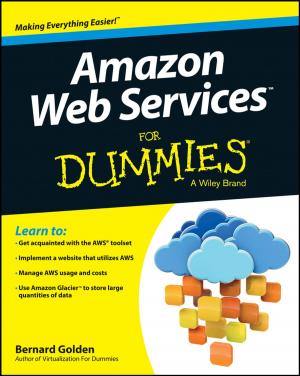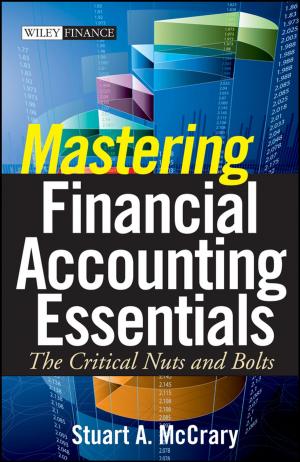Merger Arbitrage
A Fundamental Approach to Event-Driven Investing
Business & Finance, Finance & Investing, Finance| Author: | Lionel Melka, Amit Shabi | ISBN: | 9781118440070 |
| Publisher: | Wiley | Publication: | November 5, 2012 |
| Imprint: | Wiley | Language: | English |
| Author: | Lionel Melka, Amit Shabi |
| ISBN: | 9781118440070 |
| Publisher: | Wiley |
| Publication: | November 5, 2012 |
| Imprint: | Wiley |
| Language: | English |
A wave of corporate mergers, acquisitions, restructuring, and similar transactions has created unprecedented opportunities for those versed in contemporary risk arbitrage techniques. At the same time, the nature of the merger wave has lent such transactions a much higher degree of predictability than ever before, making risk arbitrage more attractive to investors. Surprisingly, there is little transparency and instruction for investors interested in learning the latest risk arbitrage techniques. Merger Arbitrage – A Fundamental Approach to Event-Driven Investing helps readers understand the inner workings of the strategy and hedge funds which engaged in this investment strategy.
Merger arbitrage is one of the most commonly used strategies but paradoxically one of the least known. This book puts it in the spotlight and explains how fund managers are able to benefit from mergers and acquisitions. It describes how to implement this strategy, located at the crossroad of corporate finance and asset management, and where its risks lie through numerous topical examples.
The book is split into three parts. The first part, examining the basis of merger arbitrage, looks at the key role of the market in takeover bids. It also assesses the major changes in the financial markets over recent years and their impact on M&A. Various M&A risk and return factors are also discussed, alongside the historical profitability of merger arbitrage, the different approaches used by fund managers and the results of academic studies on the subject. The second part of the book deals with the risk of an M&A transaction failing in terms of financing risk, competition issues, the legal aspects of merger agreements and administrative and political risks. The third part of the book examines specificities of M&A transactions, comprehensively covering hostile takeovers and leveraged buyouts. Each part contains many recent examples and case studies in order to show how the various theories and notions are put into practice.
From researching prospects and determining positions, to hedging and trading tactics, Lionel Melka and Amit Shabi present the full complement of sophisticated risk arbitrage techniques, making Merger Arbitrage a must read for finance and investment professionals who want to take advantage of the nearly limitless opportunities afforded by today's rapidly changing global business environment. The book builds on its authors’ diverse backgrounds and common experience managing a merger arbitrage fund, providing readers with an enriching inside view on M&A operations.
A wave of corporate mergers, acquisitions, restructuring, and similar transactions has created unprecedented opportunities for those versed in contemporary risk arbitrage techniques. At the same time, the nature of the merger wave has lent such transactions a much higher degree of predictability than ever before, making risk arbitrage more attractive to investors. Surprisingly, there is little transparency and instruction for investors interested in learning the latest risk arbitrage techniques. Merger Arbitrage – A Fundamental Approach to Event-Driven Investing helps readers understand the inner workings of the strategy and hedge funds which engaged in this investment strategy.
Merger arbitrage is one of the most commonly used strategies but paradoxically one of the least known. This book puts it in the spotlight and explains how fund managers are able to benefit from mergers and acquisitions. It describes how to implement this strategy, located at the crossroad of corporate finance and asset management, and where its risks lie through numerous topical examples.
The book is split into three parts. The first part, examining the basis of merger arbitrage, looks at the key role of the market in takeover bids. It also assesses the major changes in the financial markets over recent years and their impact on M&A. Various M&A risk and return factors are also discussed, alongside the historical profitability of merger arbitrage, the different approaches used by fund managers and the results of academic studies on the subject. The second part of the book deals with the risk of an M&A transaction failing in terms of financing risk, competition issues, the legal aspects of merger agreements and administrative and political risks. The third part of the book examines specificities of M&A transactions, comprehensively covering hostile takeovers and leveraged buyouts. Each part contains many recent examples and case studies in order to show how the various theories and notions are put into practice.
From researching prospects and determining positions, to hedging and trading tactics, Lionel Melka and Amit Shabi present the full complement of sophisticated risk arbitrage techniques, making Merger Arbitrage a must read for finance and investment professionals who want to take advantage of the nearly limitless opportunities afforded by today's rapidly changing global business environment. The book builds on its authors’ diverse backgrounds and common experience managing a merger arbitrage fund, providing readers with an enriching inside view on M&A operations.















